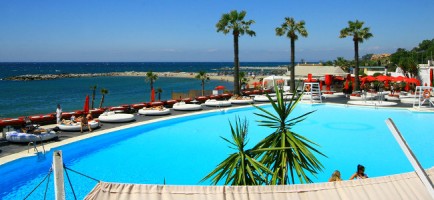
While the weather never waivers, Spain’s economy has been through some stormy times recently.
Lies, damn lies, and statistics – they don’t always necessarily come in that order, but where you can find one there is usually evidence of the other…
The British media’s reporting of Spain over the past few years has tended to err on the side of misinformation rather than outright lies. There have been hatchet jobs, exposés, sneer and glee at what was perceived as Spain’s just desserts: a crumbling economy, a hollow property market and a fleeing expat population on the look out for their next fun-in-the-sun location.
Viewed from the opposite side of the coin, this has always been frustrating. Yes, Spain has endured – and is still enduring – some financial hardships, but the image portrayed has often been akin to a sinking ship that had no hope of staying afloat.
Which is why recent reports to the contrary are so uplifting. Economies recover and confidence returns because of the hard work done by politicians and the people on the street, but image plays a bit part in that, and the media has a pivotal role to play in shaping people’s views on a country.
Today, the dichotomy between Greece – which is facing the very real prospect of financial meltdown and a painful exit of the euro – and Spain is stark. Three years ago both countries appeared mired in the same fiscal quicksand. But whereas Greece has been unable (some might say unwilling) to take the necessary steps to reform, Spain tightened its belt, rolled up its sleeves and made the tough decisions.
The UK’s the Guardian newspaper – a leading opinion-former – reported over the weekend just how Spain has entered a period of sustained recovery while Greece stares into the abyss.
The International Monetary Fund (IMF) has reported that growth in Spain will reach 3.1 per cent this year – a figure described by the Guardian as “startling”. The report notes a fair few words of caution, of course. Spain is not out of the woods yet, unemployment remains high, jobs remain scarce and insecure, and wages are still too low.

Spaniards are smiling again, but the young still face a battle.
But the overall tone is one of hope, and perfectly reflects Spain’s growing belief that the worst is over and the country can begin healing the wounds suffered during what was the deepest, harshest recession in living memory.
Big investors are returning, holidaymakers are upping their spending, property markets are displaying all of the verve but none of the shortsightedness of a decade ago, and life is starting to resemble those halcyon “anything is possible” days that followed after the turn of the millennium.
“Spain has returned to about 95 per cent of where it was in 2008,” Professor Javier Díaz-Giménez from Madrid’s IESE business school told the Guardian. “That means 2008 is still a benchmark people look back at with nostalgia. At current growth rates, the economy will get back to where it was in 2008 at the end of next year.”
The next step for Spain is to accelerate the pace of its job creation. This year, an estimated 500,000 new jobs are expected to be created, but that still leaves more than four million adults unemployed. Many thousands of young Spaniards left the country to try their luck in places like the UK and Germany, and it will require a fair few of them to return to really help drive the economy towards its full potential.
But the signs are good, the media reports are favourable at last, and the alternative reality – the many decades of future hardship now facing Greece – has been skilfully and systematically avoided.
Spain just has to make sure it stays true to its new ideals, and the British – and global media – can certainly do a lot to help with that.
 en
en



 Vlaams-Nederlands
Vlaams-Nederlands
0 Comments
Leave a Comment
DISCLAIMER
The opinions and comments expressed by contributors to this Blog are theirs alone and do not necessarily reflect the views of VIVA Homes Under the Sun Ltd, any of its associated companies, or employees; nor is VIVA to be held responsible or accountable for the accuracy of any of the information supplied.
Have you got something to say?